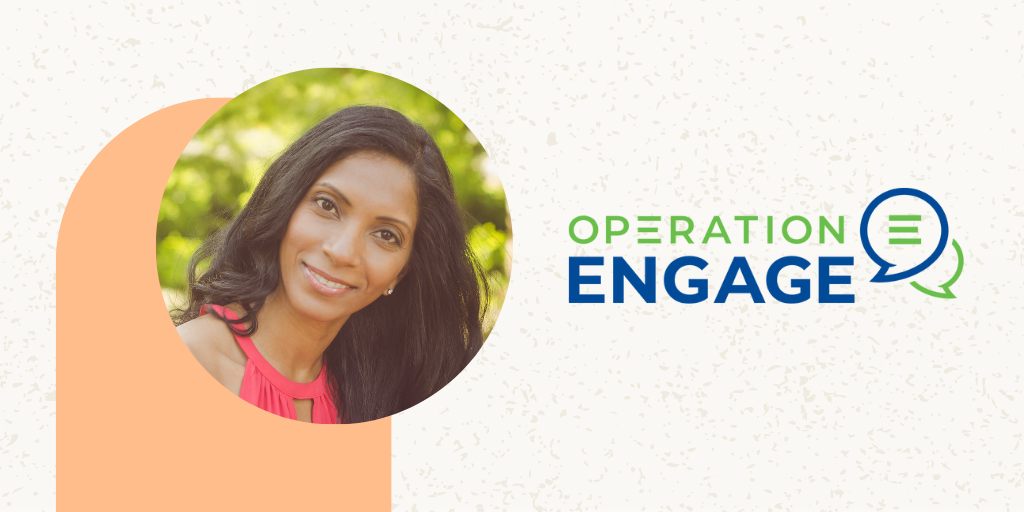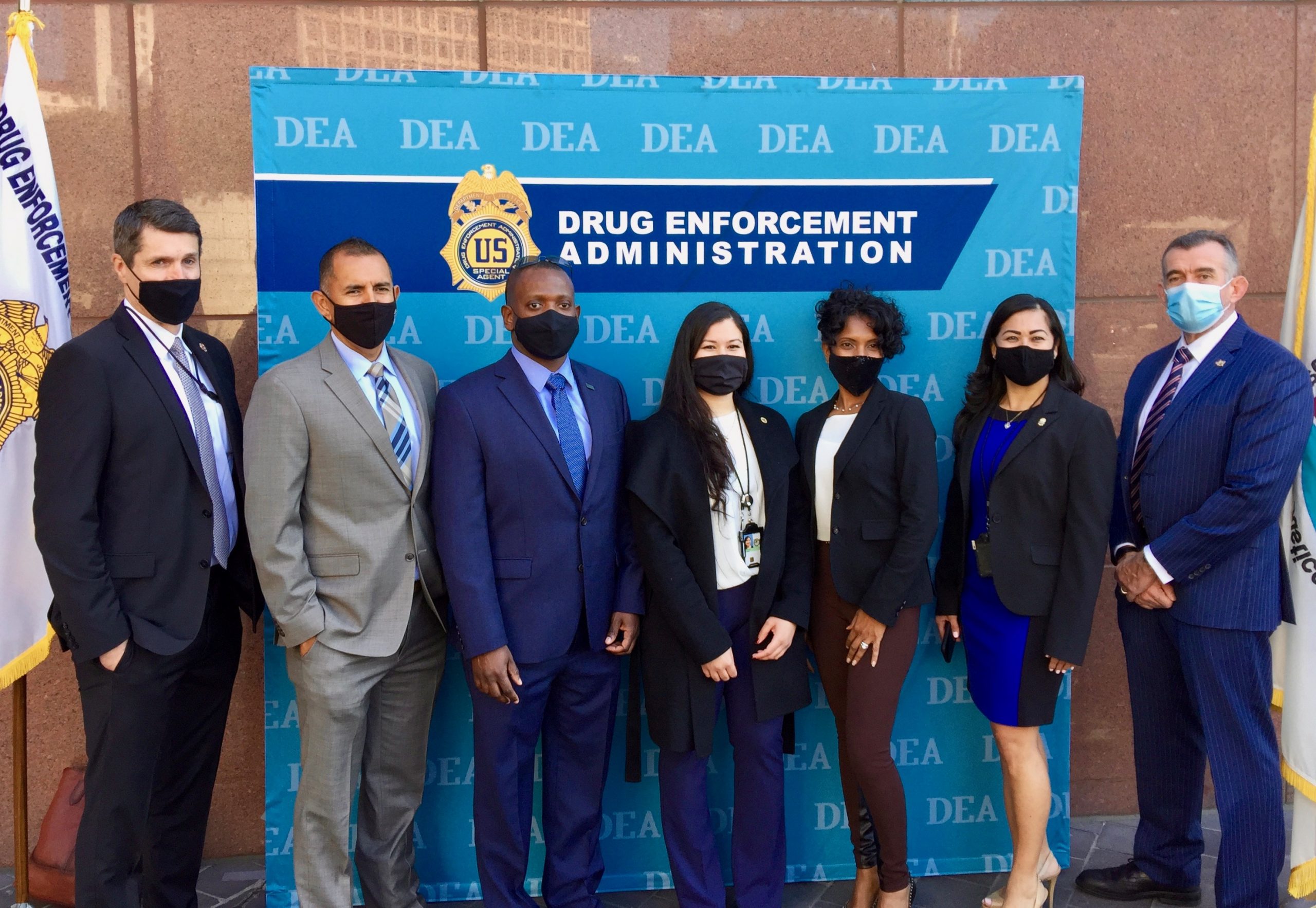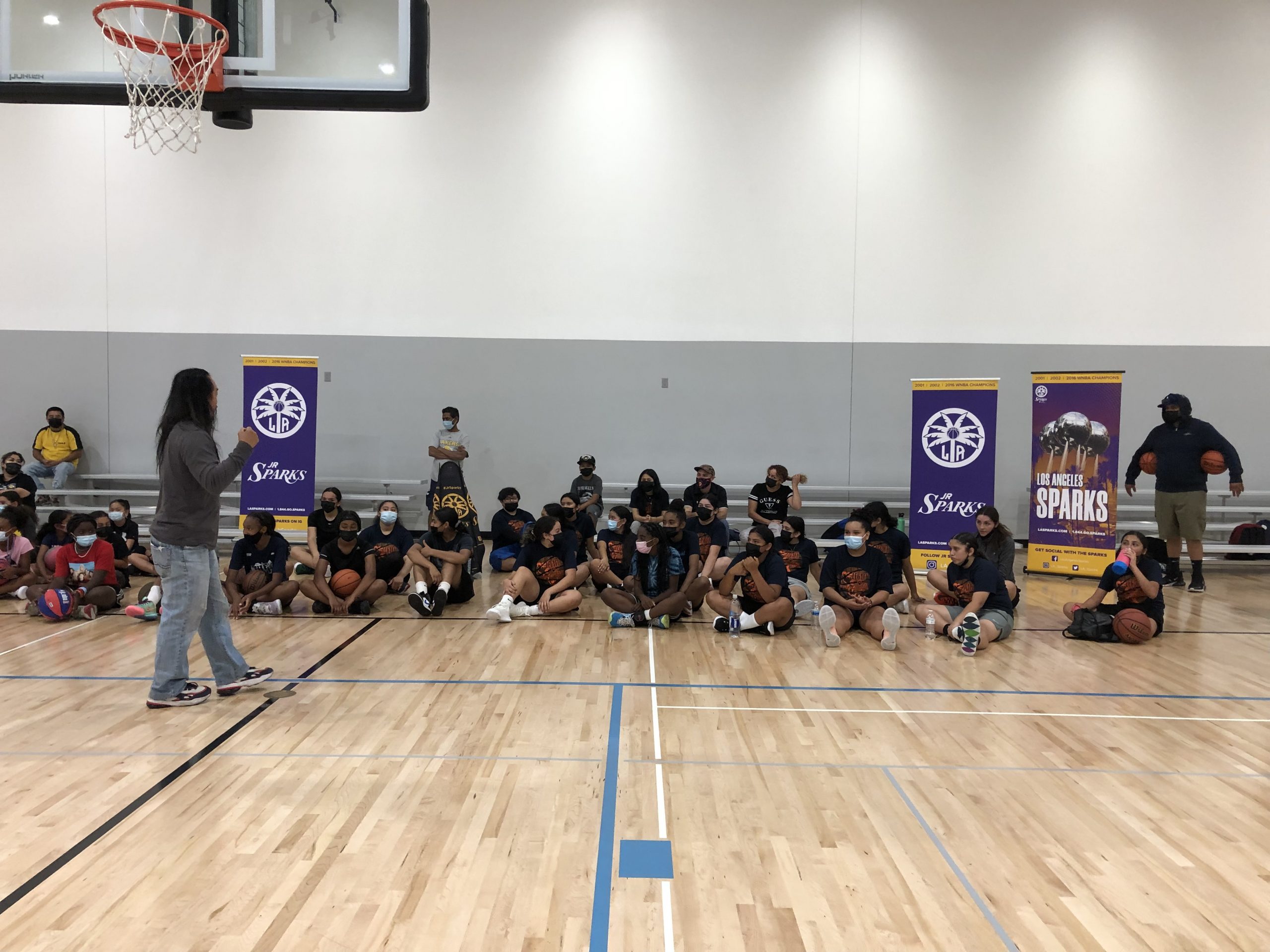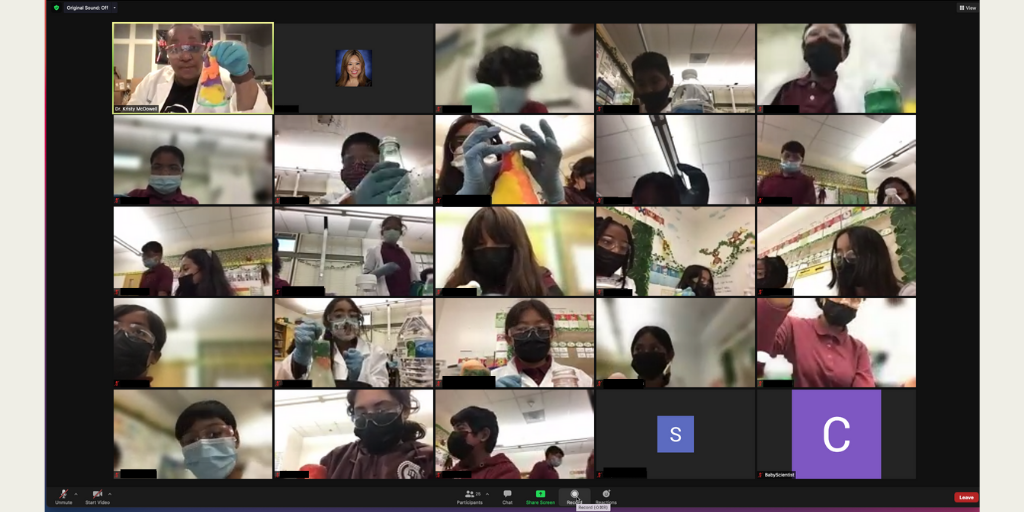
When it comes to adolescent substance use prevention there is no question that the more forces working towards the mission of creating a drug-free life for youths, the better. The DEA’s Operation Engage program is a great initiative working towards these alongside additional missions. Mentor USA had the opportunity to speak with their Community Outreach Specialist, Gail Parker.
In this interview Gail shares both her own experiences working with the DEA, their plans on how to engage in the communities during 2022, as well as some very insightful tips on how you can recognize early signs of drug and alcohol abuse among youths.
Hi Gail, thank you for participating in this interview and sharing some of your insights and inspiration with Mentor Foundation USA’s network!
You currently work at DEA (Drug Enforcement Administration) and DEA Operation Engage in Los Angeles/Southern California. Could you please tell us a little bit about yourself, your background, and how you ended up working with DEA?
I am the Community Outreach Specialist on the Operation Engage program with the U.S. Drug Enforcement Administration. While new to LA, I am not new to DEA or drug prevention. I have over 27 years of experience in the human and direct services industry. I began my career as a social worker and held several leadership roles in the juvenile justice system and children and family services. I later held the position as a counselor with an integrative counseling practice and residential care treatment for substance abuse. I was honored to provide training and development to other social service workers when the Annie Casey Foundation and Kellogg Foundation called upon me.
In 2018, I was beyond excited when the DEA offered the position as Community Outreach Specialist with the New England Field Division. DEA piloted the DEA360 Strategy Program to combat the opioid crisis. The program is the federal government’s efforts to prevent drug use and to make a sustainable impact within the local community.
In this position, my reach extended throughout New Hampshire, Maine, Vermont, and Massachusetts; I worked with state and local government, educational institutions, law enforcement, businesses, coalitions, youth serving community agencies and recovery and treatment centers to combat the opioid epidemic. My extensive experience working in prevention, substance misuse and mental health made me a great fit for the position.
My academic background includes an undergraduate degree in Psychology from Ohio University and a Masters of Education with a focus in Counseling/Adult Learning and Development from Cleveland State University. In addition to my professional duties, my passion for holistic wellness motivated me to become a certified Herbalist and an author of a wellness lifestyle book. I have served on the board of several nonprofits including the Boys and Girls Club and American Diabetes Association. I volunteer with Big Brothers and Big Sisters and have been a “big” to several young women: I have also volunteered at many homeless shelters and food pantries. I enjoy the outdoors, traveling, staying healthy, and empowering others to live a healthy and balanced lifestyle. While I discovered my passion in helping others, I realized my purpose is doing so through drug prevention.

What are some tasks that your work at the DEA and with DEA Operation Engage entails?
First, let me say the outreach specialist must be highly knowledgeable in the areas of illicit drugs, diversion, trafficking, and drug misuse prevention. I work in collaboration with multiple levels of government, various youth-serving agencies, community-based organizations, healthcare, and private sector groups. The Community Outreach Specialist develop and maintain relationships with community stakeholders, local and national partners to implement Operation Engage-related deliverables within the local community. Bridging the gap between public health and public safety.
Some tasks includes but are not limited to:
- Lead, coordinate, and ensure effective implementation of outreach activities, information sharing among community agencies and creating partnerships.
- Serve as a speaker and program representative on outside community committees and providing training to individuals and organizations, in the areas of illegal and prescription drugs, trafficking, and drug misuse prevention.
- Implementation of after-school and leadership development programs for the youth.
- Organize training, seminars, lectures, and activities relevant to community needs and requests. This includes providing information on division resource and drug diversion issues. As well as coordinating information and resource sharing.
- Gather, interpret, and evaluate drug trends, threats and crime data.
- Provide support to coalitions and task forces in building and strengthening a community-based network.
- Maintain an understanding of existing drug law enforcement, drug addiction treatment, and drug misuse prevention/education organizations within the field division’s area of responsibility.
- Serve as primary liaison and point of contact for major drug addiction treatment/misuse prevention/education organizations within the areas of focus.
We service all ages; however, our main focus is the youth, that’s the population under age 26. We acknowledged this is an unserved and high-risk population. We also believe it might be a long-term solution to the drug epidemic.
Gail Parker, Community Outreach Specialist - DEA Operation Engage
Most people might think of DEA just as law enforcement, but we know that you do so much more than that. Do you mind telling us about some other things DEA does, for example how you work with youth in schools, parents and how you engage communities, and such?
Operation Engage is a federal funded program. Many people do not realize that DEA community outreach section has been around since 1986. Since then, DEA has continued to evolve the community outreach program. The 360 Strategy program was a huge success not only in New England but in twenty-three other cities. In evaluating this program and considering the feedback from community members DEA launched a new community outreach program – Operation Engage in 2020 allowing each division to focus on the primary drug threat (not just opioids) within the community of focus. We continue to work with communities keeping in mind our goal to bridge the gap between public health and public safety. Since 360 Strategy, DEA began hiring civilians for this position. DEA understood that at times the law enforcement presence can be a barrier to effectively providing services and resources to high-risk communities. Therefore, they removed that barrier by hiring non-law enforcement individuals.

Operation Engage consists of a three-pronged approach, outreach and prevention support, law enforcement, and diversion control.
When I engage the community, I keep these three prongs in mind. Drug misuse and abuse affect many people. We service all ages; however, our main focus is the youth, that’s the population under age 26. We acknowledged this is an unserved and high-risk population. We also believe it might be a long-term solution to the drug epidemic. We collaborate with many of the “boots on the ground” individuals and coalitions providing information to bring awareness to the science of addiction and the importance of mental wellness. We meet and engage with community agencies, government, committee, educational institutions and private sector. We also provide workshops, seminars, and community summits where we educate the community about drug trends and threats. We use resources and data from the community to share. We also have Operation Prevention; they have programs for the youth, adults and workplace that’s based on science.
We implemented several programs for the youth, particularly within Title I School Districts. We understand many schools within these districts do not have access to sports, arts and science programs and leadership opportuties; we want to give these youths a fair opportunity. We have programs such as dance, martial arts, baseball, basketball and STEM. These programs are fully sponsored by DEA for a limited time. However, we assist the community with resources and information to help make them sustainable.
We have a great partnership with the LA Sparks. They provide basketball clinics to selected schools. The students learn basketball skills, interact with professional athletics, and we are encouraging mentorship opportunities. Many of the student have said, this has been a valuable experience and it gives them hope.
The newest program, BabyScientist offered through DEA Educational Foundation is offered to fourth and fifth graders, introducing them to the world of STEM; It’s taught by a world-renowned STEM Scientist who is a black woman. What better way to positively influence minority students, creating future minority scientists? All the other programs are taught by highly professional individuals with 3-5-year minimum experience. During these activities we present information to the students about the effects of drugs on the body and brain.

Could you give us a few examples of what DEA Operation Engage has focused on during this year, and how you plan to engage in various communities moving forward during 2022?
In 2021 Operation Engage served six counties to include San Luis Obispo, Santa Barbara, Los Angeles, Ventura, Orange, and Riverside. This was a very large territory to take on; however, we believe we were successful in bringing resources, raising awareness, and educating the communities on drug threats, trends, and drug prevention. We delivered baseball to the Boys and Girls Club in Carpenteria. We were excited when a Deputy Sherriff agreed to coach a group of twenty youths. He was a former baseball player at a local high school and played in college. This was an ideal way to have law enforcement engage the youth in a positive manner. We also presented the BabyScientist program to 4th graders at Synergy Academy which is a prominently Latino school. The students were introduced to the world of STEM. The students had an amazing time learning how to defy gravity, they learned about DNA cells with strawberries and created their own volcano eruption with vinegar and baking soda.
Our focus on the youth provides opportunities and presents information to hopefully help them to make better choices. We looked at the connection between mental health, addiction, trauma, homelessness and the justice system and how these interconnect with substance misuse and drug addiction. We want to celebrate and highlight progress and resources in prevention. We also want to continue to assist and provide resources to the community to help mitigate these issues.
Moving forward to 2022, we will concentrate on several cities within LA and Riverside Counties. We will select areas with high drug and violent crimes, providing resources and helping to be sustainable. The LA Field Division, realized in order to be more effective and make these programs sustainable, we have to narrow our focus. We will continue to serve both youth and adults with the primary focus on the youth.

What has been you favourite part, so far, working with DEA Operation Engage?
Honestly, I could not have asked for a better position at this point in my career. I believe in the mission for this program. I believe DEA wants to be a part of the solution and not the drug problem. I don’t have a favorite part of this program because everything I do is aligned with serving the community and working towards drug prevention. Therefore, it’s difficult to be biased toward one program or one aspect of what I do. I enjoy every aspect of what I offer to the community.
Now it’s even more urgent that we educate the community about the impact of mental health and address the connection to drug addiction. Teaching parents, educators and students how to be an advocate and assess resources to better mental wellness is key.
Gail Parker, Community Outreach Specialist - DEA Operation Engage
What are your reflections on the impact that the pandemic has had on the subject of substance use among youth?
Mental Health/Wellness, or lack thereof, has wreaked havoc on our nation during this pandemic. We lost more than 93,000 people in 2020 to overdose deaths. Now it’s even more urgent that we educate the community about the impact of mental health and address the connection to drug addiction. Teaching parents, educators and students how to be an advocate and assess resources to better mental wellness is key.
Why are preventative initiatives important when it comes to adolescent substance use?
Prevention is important when it comes to the youth because we believe it might be a long-term solution and different approach than what we have been doing. The youth want information and to be educated on the “why” and not just to be told “say no to drugs”. While that approach may have worked for some in the past; this new generation wants to know the “why”. Their brains are like sponges, if they are not getting accurate information, they will not be armed to make informed choices.
Young people are assets to our community who can make positive and long-lasting contributions when the opportunity arises. Their participation and buy-in is essential for drug prevention programs to reach their goals and objectives.
Young people are assets to our community who can make positive and long-lasting contributions when the opportunity arises. Their participation and buy-in is essential for drug prevention programs to reach their goals and objectives.
Gail Parker, Community Outreach Specialist - DEA Operation Engage
How do you know someone, especially a teenager, has started to use drugs? What are some of the signs to look out for?
This is a loaded question because there are so many factors involved. One of the most challenging aspects of addiction is that it is a progressive disease. Early warning signs can be hard to spot, and unhealthy patterns can develop into a full-blown substance use disorder if not addressed. Mood swings are a common thing among teens and chances are it can be attributed to the racing and changing hormones that come with adolescence. I will urge parents, caregivers, educators, and community members involved with the youth to pay close attention if your youth is experiencing any of the following:
- Mood swings along with changes in behavior or appearance, such as:
- Losing interest in activities they once enjoyed
- Dropping old friends for a new group
- Acting despondent, aggressive or angry
- Sleeping more than usual
- Breaking rules
- Exhibiting physical changes like sudden weight loss, frequent nosebleeds, bloody or watery eyes, or shakes and tremors
- Avoiding eye contact
- Ignoring or breaking curfew
- Acting irresponsibly
- Frequently asking for money
- Stealing
- Locking bedroom doors
- Making secretive calls
- Isolating from others/damaging relationships with family or friends
- Making excuses (or outright lying)
- Withdrawing from classroom participation/slipping in grades
- Resisting discipline or feedback
- Missing school or work
- Losing interest in hobbies or activities
- Abandoning long-time friends
These are behavioral and physical signs that your child could be misusing medications or using drugs, or drinking alcohol. Knowing the signs and symptoms can help you better understand and get a professional involved sooner than later.
Some other factors to consider for prevention:
- Age of first use: The younger a child engages in alcohol and drug usage, the higher risk of alcohol and drug usage as an adult.
- Family history: If there’s a parent who has had drug and alcohol addiction, the higher the risk of alcohol and drug usage for their offspring.
According to you, is there something you recommend one can do, to help someone else, who might have started using drugs, or to prevent them from doing so?
I will address prevention first. It’s important to talk with your youth about lifestyle choices, giving them the tools to make better choices. It’s also important to acknowledge when your child might be having mental health challenges, to seek help without hesitation. Even casual alcohol, marijuana, vaping, and/or drug use can quickly spiral out of control.
If you suspect your teen or anyone is using drugs, addicted, or misusing drugs, assist them in seeking professional help immediately even if that means attending Narcotic Anonymous.
What is something about the DEA and the work that you and your colleagues do, that you wish everyone knew?
I wish people knew of and participated with the programs and resources offered through the community outreach efforts. We are not giving more work to the community we are helping by providing resources and programs to prevent drug abuse. We would like to be able to bring the programs discussed to communities to give the youth opportunities they would not otherwise have. In addition, helping those with boots on the ground continue to do great work. Ultimately, we want to help empower Southern California communities to be part of the solution, and give hope to young people and enable them to make better choices for a healthier and happier life.
Thank you, Gail!
Mentor Foundation USA looks forward to continuing our collaboration with DEA and Operation Engage!